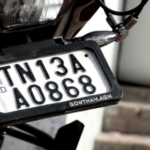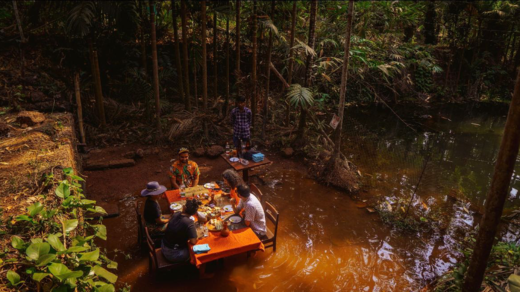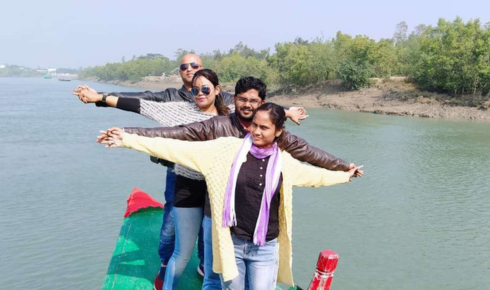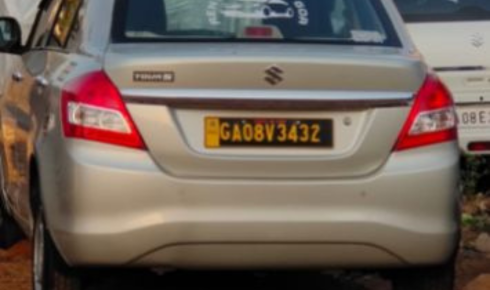1. How can I stay safe while traveling internationally?
Be aware of your surroundings, keep your valuables secure, research local laws and customs, and stay informed about potential safety risks in your destination. Always have emergency contacts, and consider travel insurance.
2. Should I register with my embassy when traveling abroad?
Yes, registering with your embassy enables them to assist you in case of an emergency, such as a natural disaster or political unrest. Many embassies offer online registration services.
3. How do I keep my passport and documents safe?
Keep your passport, visas, and important documents in a secure, hidden place, such as a money belt or neck pouch. Consider carrying photocopies of these documents and store them separately.
4. What are the best ways to avoid theft while traveling?
Use anti-theft bags, do not carry large sums of cash, keep your valuables out of sight, and be careful with strangers. Be more cautious in crowded tourist areas.
5. How can I stay healthy while traveling abroad?
Stay hydrated, eat at reputable places, wash your hands frequently, and get the recommended vaccinations for your destination. Carry any necessary medications and be cautious of food and water quality in unfamiliar regions.
6. Should I use public Wi-Fi while traveling?
Be cautious when using public Wi-Fi. Avoid accessing sensitive information, like banking accounts, and consider using a virtual private network (VPN) to protect your online privacy.
7. What should I do if I lose my passport or travel documents?
Report the loss to the local authorities and contact your embassy for assistance in replacing your passport. Carry a copy of your passport and important documents to help with the process.
8. How can I ensure my money is safe while abroad?
Carry both credit and debit cards. Try to carry less cash as possible and a safe at a hotel is convenient to keep all your valuables. Notify the bank of travel dates to ensure no security blocks your cards while abroad.
9. Should I get a local SIM card or use international roaming?
Buy local SIM card for fewer rates or use international roaming if the network carrier has reasonable value. Local SIM card often covers better and costs much less for calls, texts and data.
10. Safe transportation while abroad
Use reliable transport services, avoid unmarked taxis or generally find out safe routes. Keep emergency numbers somewhere handy while your accommodation would provide safe transport options.
11. Is it safe to walk around at night in foreign cities?
It varies by destination. Research your destination for safety information. Stick to well-lit, populated areas and avoid walking alone in unfamiliar or poorly lit neighborhoods. If you can, take a trusted taxi or ride-sharing service at night.
12. How do I protect myself from scams when traveling?
Be wary of overly friendly strangers or unsolicited offers. Research common scams in your destination. Always negotiate prices up front for services like taxis and tours and avoid carrying too much cash.
13. How do I avoid food poisoning while traveling abroad?
Eat at restaurants you can trust, avoid street foods that might not have been refrigerated, use bottled or boiled water, and peel fruits on your own. Refrain from raw foods, particularly in countries where sanitation is lacking.
14. What should I do in case of an emergency abroad?
Know the local emergency contact numbers, including for medical assistance, fire, and police. Have contact details for your embassy and a local hospital. Carry your health insurance card and list of important medical information.
15. How can I stay safe in unfamiliar areas or neighborhoods?
Research your destination thoroughly before arrival. Stick to well-trafficked areas and avoid risky neighborhoods. If you’re uncertain, ask your hotel or locals for advice on areas to avoid.
16. Should I carry travel insurance?
Yes, travel insurance is highly recommended for covering emergencies such as medical issues, trip cancellations, and lost or stolen belongings. Choose comprehensive insurance that suits your destination and activities.
17. How can I avoid jet lag when traveling internationally?
Adjust your sleep schedule to your destination’s time zone before you leave, stay hydrated during your flight, and avoid caffeine or alcohol. Once at your destination, spend time in daylight and try to sleep according to local time.
18. How can I deal with cultural differences safely?
Be respectful of local customs and cultural norms. Research the etiquette, dress codes, and behaviors that are expected in your destination. Avoid controversial topics and always ask locals if you’re unsure about anything.
19. How can I protect myself from illness while traveling?
Stay up-to-date on vaccinations, carry hand sanitizer, avoid close contact with sick individuals, and take precautions against insect bites, especially in tropical or subtropical areas.
20. How do I manage my safety when getting taxis and ride-sharing abroad?
Use safe and reputable taxi services, ideally suggested by your hotel. For using ride-sharing apps like Uber, check the information of the driver before entering their car, and always share your journey details with someone you trust.
21. How do I prevent myself from getting pickpocketed while traveling?
Use a money belt or anti-theft backpack, carry your wallet in your front pocket, avoid wearing flashy jewelry, and be constantly aware of your surroundings. Avoid distractions-thieves often use these to work their magic.
22. What should I do if I’m a victim of theft in a foreign country?
Report the theft to the local police and get a copy of the report for insurance claims. Call your bank or credit card company to report the theft of the cards and to block them. Report the loss of your passport to your embassy if it was stolen.
23. How can I protect my digital devices while traveling?
Set up strong passwords and two-factor authentication. Avoid accessing sensitive accounts on public Wi-Fi, and encrypt your devices if possible. Consider using a VPN to enhance online security.
24. How can I safely explore nature or go on hikes abroad?
Research trails and weather conditions before venturing out. Always carry water, a map, and a basic first-aid kit. Let someone know your plans and estimated return time, and avoid hiking alone, especially in remote areas.
25. What do I do if I get sick abroad?
If you need to, seek medical attention through your accommodation, local clinics, or hospitals. Carry any prescription medications you may need and have your health insurance information available.
26. Is it safe to use Airbnb or similar services?
Airbnb and other comparable sites can be safe if best practices are used. Always check reviews, identify the host’s identity, and select properties that are located in safe, highly populated areas. Avoid private deals or unlisted accommodations.
27. How might I safely navigate unfamiliar cities or landmarks?
Use well-known guides or local tour services. Follow familiar routes, avoid shortcuts in unknown areas, and carry a copy of your map or itinerary with you. Travel in groups or use guided tours when available.
28. Should I carry a self-defense tool while traveling?
While pepper sprays and other self-defense weapons are legal in some countries, they are banned in others. Be sure to research the legal requirements of the country you plan to visit, so you may carry items that don’t violate those laws.
29. How do I stay informed about safety risks abroad?
Check government travel advisories, monitor local news, and stay in touch with fellow travelers or locals. Social media groups and travel forums can also provide real-time updates on safety concerns.
30. How do I protect my credit cards while abroad?
Notify your bank of your travel dates to prevent fraud alerts, use credit cards with chip-and-pin technology for added security, and be cautious of ATM skimming. If possible, use a credit card rather than a debit card for security reasons.
31. Should I carry a backup credit card or cash?
Yes, absolutely; one should always carry a backup credit card or a small amount of local currency in case of losing one’s main payment method or if technical issues may arise.
32. How do I safely store my valuables while abroad?
Always lock valuables away in the hotel safe or security box when you are not carrying them. While out, it is always safe to carry a lot of money, cards, and documents by using an anti-theft bag or money belt.
33. What do I do in case of a political disturbance or civil unrest?
Keep yourself updated by trusted news agencies and heed local authorities’ instructions. Steer clear of protest zones, stay indoors when possible, and keep a low profile. Reach out to your embassy if needed.
34. How can I overcome the language barrier for safety?
Be familiar with key phrases in the local language; carry a translation app or use a phrasebook. Knowing safety-related phrases, directions, and emergency services would be helpful.
35. How can I ensure my safety when visiting rural or remote areas?
Plan ahead by researching the area, packing essentials such as a map, flashlight, and first-aid kit, and letting someone know your travel plans. Take appropriate precautions regarding food, water, and sanitation.
36. Should I bring my own emergency contact information?
Yes, write down and carry the emergency contact information for your country’s embassy, a local hospital, and trusted contacts. Include medical information like allergies and existing conditions.
37. What is the best way to avoid getting lost while traveling abroad?
Use a map or navigation app, keep your phone charged, and note landmarks. Stay aware of your route, and ask for directions if you feel unsure. Stay in well-populated areas to reduce the risk of getting lost.
38. How can I safely use public transportation abroad?
Be aware of the surroundings and be careful with one’s belongings. Official transportation should be used. Try to avoid empty trains or buses at late hours of the night. While in crowded places, valuables should always be kept close by.
39. How can I avoid becoming a victim of crime while traveling?
Be aware of your surroundings, avoid flashy displays of wealth, and keep your personal items secure. Avoid risky areas and trust your instincts — if something feels off, it’s time to leave the area.
40. How can I prevent illness from insect bites while traveling abroad?
Use insect repellent, wear long sleeves and pants, and sleep under a mosquito net if necessary. Be cautious in areas where diseases like malaria are prevalent and consider taking preventive medications.
With proper planning, vigilance, and adherence to these safety tips, you will be able to have a more secure and enjoyable travel experience while abroad.











